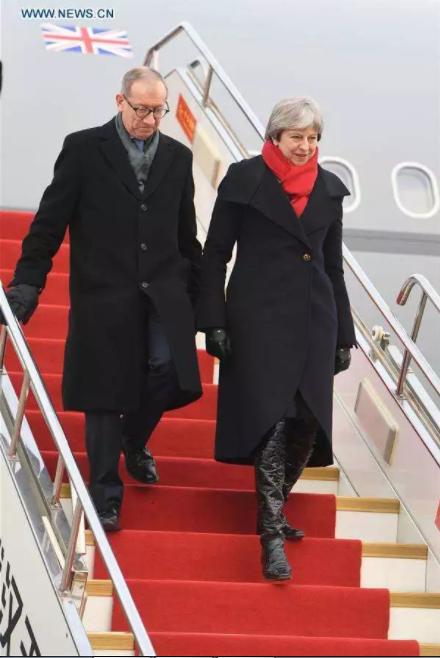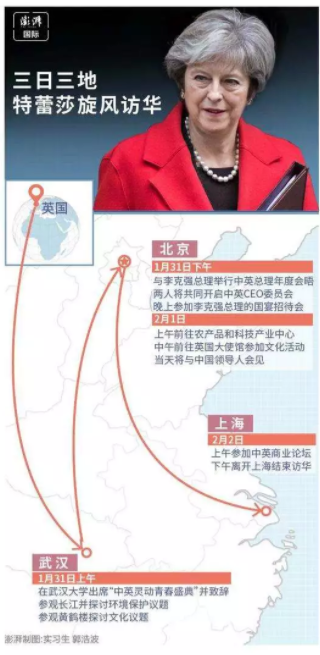Launched in January 2017, WeChat mini-programmes, or sub-apps within WeChat official accounts, have widened possibilities for marketers by adding additional functionality like e-commerce, coupons, loyalty schemes, and task management. According to Jing Daily, by the end of January 2018, a total of 580,000 mini-programs boasting a cumulative 170 million daily active users could be found on the app. Indeed some leading Chinese e-commerce companies like Pinduoduo have more users on their WeChat mini-programme than on their own native app.
But how can UK consumer-facing brands across gaming, leverage this rapidly developing and highly customisable platform?
This event, co-organised by ReGroup Media and the China-Britain Business Council (CBBC), hopes to explain the key functionality available, how it can be used, outline the costs and requirements, and provide some case studies of where it has worked well.
Formed by experienced marketers and technicians, Regroup China is a specialist digital marketing agency committed to helping Western Brands define and action strategy for China – the World’s biggest online market.
Agenda:
1400 Introduction – Jack Porteous, Retail and E-Commerce Sector Lead, China-Britain Business Council
1430 WeChat Mini-Programmes: how and why you should be using them – Scott Muir, CEO, Regroup Media
1530 Questions
1600 Close
Click here to know more and register: http://www.cbbc.org/events/2019/january/boosting-engagement-and-sales-through-wechat-mini/
The British House and Regroup Media launch TBH Digital, providing digital marketing services for UK retailers to reach China – the World’s largest online market
The British House – http://www.thebritishhouse.com.cn is a unique multi-brand retail store located near Tian’an Men Square in Beijing, selling premium British products to the growing Chinese domestic market.
Chinese shoppers can choose items and buy them online using tablets in store.The goods are then shipped direct to the customer from the UK. There are currently over a hundred premium UK brands available for sale.
The British House has teamed up with Regroup Media – https://www.regroup-media.co.uk/, a London-based digital marketing agency that specialises in digital marketing for China, to form a new agency – TBH Digital.
TBH Digital will provide UK retail brands with a full-service digital marketing offering for China encompassing:
- Strategy and implementationfor Chinese social media channels WeChat & Wei Bo
- SEO for the Chinese search engine Baidu
- Local web site design for the Chinese market
- Consultancy services to help engage with the Chinese market
The offering will enable UK brands to build their digital footprint in China, raising awareness, which in turn will help drive sales.
There are around 800 million users online in China, and this figure is growing continually, ther are also over 500 million online shoppers. The market already accounts for 1/5 of the worlds online sales.
Yimei McCabe, the Founder of The British House stated:
“Retailtainment as in Retail with entertainment and Phygital as in Physical stores with digital services are the future. It is predicted that Retailtainment and Phygital trend would in future turn traditional stores more into showrooms where experience and entertainment are used to connect with the customers who would then conduct sales online either inside the store or back at home. We are delighted to launch TBH Digital to serve both British brands and Chinese consumers better!”
Scott Muir, the MD of Regroup Media commented
“This partnership is a natural fit between the offline and online worlds in China. We firmly believe that the China market will continue to grow for UK brandsespecially for the premium brands available in The British House. As such this is a very exciting partnership, with sizable growth potential”
For further enquiries contact:
- Jamie Powell at jamiepowell@thebritishhouse.com.cn
- Scott Muir at scott@tbh-digital.co.uk

英国首相特雷莎今天上午抵达湖北武汉
图片来源:新华社
The British Prime Minister Theresa May today kicks off her first official visit to China since taking office in 2016. The three-day visit is also the first by a British prime minister to China since Chinese President Xi Jinping’s tour to Britain in October 2015 when both sides agreed to embrace a “Golden Era” for bilateral relations. How do British and Chinese people think of the significance of her visit? There’s our correspondent Chloe.
In the British House in Beijing, a reception has been held to celebrate the visit of The British Prime Minister Theresa May. People from sectors such as business、education、culture、media of both countries gather to share their opinions of the golden era of Sino-British relations and the future cooperation.
Adam Williams, Deputy Chairman, China of International Hospitals Group(Shanghai)Ltd says a strong bond of trade and business between the two countries have been going on for more than 200 years. The British Prime Minister Theresa May’s visit definitely has great significance of further strengthening the cooperation.
Reference:

英慈企业管理咨询(上海)有限公司中国区副主席Adam Williams接受本台记者采访
Britain is China’s second largest trading partner within the European Union (EU) and China is Britain’s second largest non-EU trading partner. How to help British brands better enter the China, the biggest market in the world and improve their sales and services according to Chinese customers’ needs? Scott Muir, marketing director of regroup explains this is what Regroup Digital Media is doing, which develops market strategies, tactics and solutions especially through digital channels to facilitate those brands in knowing Chinese market.

Regroup Digital Media市场总监
Scott Muir接受本台记者采访
In a major outcome reached at the recent China-UK Economic and Financial Dialogue, the two are proposing a bilateral investment fund with the first round of 1.3 billion dollars to create jobs, promote trade and support the China-proposed Belt and Road Initiative. The two countries also plan to step up practical cooperation in such fields as nuclear technology, high-speed train, energy, aerospace and artificial intelligence, among others.

中英关系“黄金时代”
Demi Ping, Director of Retail and E-commerce of the China-Britain Business Council says that they serve as a bridge for enterprises from both countries to seek those business opportunities through various ways like forums, and breakfast meetings.
The reception in the British House has been celebrated in a joyful atmosphere where the world-renowned Scottish bagpipes have been performed to mark the special occasion. British Prime Minister Theresa May this morning visited Wuhan, central China’s Hubei Province and now she is in Beijing and then visit Shanghai on Feb. 2 to wrap up her official visit to China.

英国首相特雷莎访华行程图,图片来源:澎湃国际
Regroup has been selected to partner with SMX as an official blog partner in the run up to the May event. SMX is the World’s biggest search marketing conference. The London event is to be held on the 23rd to the 24th May. Get tickets here – http://marketinglandevents.com/smx/london/. It’s sure to be an exciting event, with some big name speakers.
The SEO agenda is looking like the following:-
- Creating Blockbuster Content
- Keywords Are Dead — Long Live Concepts, Entities & Audiences!
- The Most Common SEO Mistakes, And How to Fix Them
- Meet The Search Engines
- SEO Success Without Link Building
- Penguin Prevention: Link Acquisition & Audit Techniques You Need To Know
We hope to see you there.
Happy to announce the launch of The LabGroup, a think tank and incubator for technology enabled business ideas.
The LabGroup is a venture between The Creative Lab and Regroup Media, a venture dedicated to bringing to market the next generation of big ideas in this space.
More info here – http://www.thec-lab.co.uk/The%20Lab%20Group.html
Watch this space
Recent months have seen Twitter moving closer to making its platform a shopping destination, which given the success of similar models for We Chat recently, makes a lot of sense, and will undoubtedly unlock huge monetisation potential for the Social giant.
Twitter announced last month that its testing 2 new ways to help users find items on the web to surf and possibly purchase;
- Product Pages – Firstly, new Twitter Product pages will include product descriptions, prices, and the option to purchase certain products. The new pages will organise related tweets about brands and products on dedicated pages. Product pages will show other users’ tweets about that product, together with prices, and, sometimes, a buy button.
- For instance, the publishing company Penguin Random House, on their Twitter profile, you could redirect to a product page for Andy Weir’s novel The Martian. You could then read what other people are tweeting about the book, and decide if you wanted to buy it, which you could do directly from the product page. Retailers can choose if they want to sell on the service or link out to an alternate page.
- Collections – Secondly, Twitter is rolling out what it’s calling Collections — a way for brands and celebrities to curate products and recommend them to followers. Demi Lovato, and Nike are a few examples of the 41 partners that have already curated collections.This feature is more about browsing, while the product pages are about shopping.
These developments are hot on the heals of Twitter adding a ‘buy’ button last year, on some promoted tweets. The implementation of product and collection pages would seems to be part of an effort to get users to think of Twitter as a shopping destination.
For more information, check this link, on Twitters blog – https://blog.twitter.com/2015/testing-new-ways-to-make-it-easier-to-discover-products-and-places
Watch this space.
I was lucky enough to be invited to the China Marketing & Strategy Programme this month, hosted at Fudan University, in Shanghai. It was a great event, sponsored by the London Mayor’s Office, in conjunction with the UKTI and KPMG.
The week long course was intense and covered all the key areas necessary for brands wishing to enter the Chinese market. What came out of the event was that entering China is by no means a straight forward process for Western businesses.The rule book in the west can be thrown out the window, but of course the rewards for those brave enough to make the leap to the East are well worth the effort.
Key learnings:
There were many learning that came out of the event, I have summarised a few of the most pertinent themes below:
– Localise Strategy – Make sure strategy is properly localised for the Chinese market. The example of EBay’s failure to develop a local strategy for China was highlighted as the main reason for their ultimate failure in China, much to Alibaba’s gain. EBay failed to develop a website designed specifically for a Chinese audience, instead using their one-size fits all web interface, which wasn’t suitable for a Chinese audience. Likewise their failure to understand the Chinese consumer preference for pricing to go down, not up, as is the bidding process on EBay, was another contributing factor to their failure to crack China.
For more information on EBay’s failure in China, see this Forbes article – http://www.forbes.com/sites/china/2010/09/12/how-ebay-failed-in-china/
– The Importance of the Joint Venture – Those Western brands enjoying success in China are also those brands that fully understand the importance of entering the Chinese market in a joint venture capacity. The joint venture model allows western brands to tap into market/ consumer insights that would otherwise be hard earned. Walmart were used as an example of a Western retailer entering China in 1996 in a JV. Walmart now have sales exceeding $7B in China.
Many Western brands enter the Chinese market in this capacity. One key theme is that whilst brands do enter China with a familiar brand identity, often that is the only thing that is the same as their Western counterpart. A visit to KFC in China for instance is a wholly different experience to that of visiting a KFC in the US or the UK. The restaurants are larger in China, the food is locally sourced, with different ingredients, and the focus is on people eating in as opposed to taking away, to better fit the Chinese culture.
For more information on Wal Mart’s success in China, see this Forbes article:- http://www.forbes.com/sites/petercohan/2012/05/18/how-did-wal-mart-crack-open-china/
– The Importance of Marketplace – We learnt about the importance of Marketplace in China. Marketplace refers to B2C eCommerce channels, similar to Amazon in the West, such as Tmall and JD, these being key retail channels to reach the ever-expanding online market in China (650 million and rising). Tmall accounts for c 50% of all online clothing/ footwear sales in China.
One key point, that may surprise Western brands, is that gaining visibility of Tmall can be relatively straight forward. Western brands can get on Tmall Global for instance without having a dedicated presence in China. This is good news for Western brands, wishing to assess the market before making a full-scale leap into this market.
– Copying is the highest form of flattery – China is well know for its relaxed laws on fake products, though this is changing. One key characteristic of the Chinese product market is the prevalence of close-copies to Western-counterparts. In name and in design. The Iphone is widely copied for instance.
The automotive industry is not immune to this legal, and widely practiced form of plagiarism. For instance the Land Rover is a big seller in China, and there is a home-grown brand called the Land Tiger, which is almost exactly the same in look, and branding.
What this reiterates is the need for any Western brand entering this market to pay due diligence to the need to protect IP thoroughly, and to not underestimate the local markets ability to copy, unless IP protection is bullet proof.
– Shanghai Free Trade Zone (SFTZ) – One of the highlights of the event for me was a trip to Shanghai’s Free Trade Zone. The SFTZ was set up in 2013, and is the first of its type in mainland China. The SFTZ covers an area of 46 square miles in close proximity to Shaghai’s port. Commodities entering the zone are not subject to duty and customs clearance, as is the case outside the zone, making trade more open.
The Zone also cancels out a number of financial requirements for setting up a company in China, including the minimum registration capital of RMB 30,000 for limited liability companies, the RMB 100,000 minimum for single shareholder companies, and the RMB5 million minimum for joint stock companies. Moreover, under the SFTZ’s new capital registration system, foreign investors are no longer required to contribute 15-percent capital within three months and full capital within two years of the establishment of a foreign invested enterprise.
In addition to the financial freedoms, the SFTZ also has a simplified procedure for foreign investors to establish a company in China. The “one-stop application processing platform” unique to the Zone requires that all application materials be submitted to and handled by the Industry and Commerce Authority (AIC) in the Zone. The relevant approval and filing procedures are then conducted via inter-departmental circulation, after which the various licenses and certificates (including the business license, enterprise code certificate, and tax registration certificate) are issued to the applicant(s) by the AIC.
This means that applicants may obtain all the necessary documents for company establishment in one place, in contrast with outside the Zone where applicants must run around between different authorities for the issuance of various certificates.
There are a raft of other inducements for Western businesses to set up in the Zone. More information can be accessed here:- http://en.wikipedia.org/wiki/Shanghai_Free-Trade_Zone.
The Zone makes setting up and doing business in mainland China far easier for Western businesses. It has also set a precedent for Western businesses to trade in China, and hopefully paves the way for an opening up of the market.
All in all it was a very useful session, and thanks to the Mayor’s Office, the UKTI, KPMG and Fudan University for making it all possible.
As MD of Regroup China (part of Regroup Media), we help our Clients develop strategies for establishing and promoting a presence in China on digital channels. Over the last 18 months or so there has been a significant change in market demand for luxury items in China.
We have seen the following trends/ market insights in recent months in this fast-changing market:
Spending on Luxury Items
• Spending on luxury items has dipped in mainland China this year.
• Interestingly overall luxury spending per head hasn’t gone down though, just more and more Chinese nationals are spending overseas, avoiding restrictive mainland tariffs.
• We are definitely seeing this in evidence in the UK, with greater tourist-spend from Chinese nationals, particularly in the capital, but also other popular tourist destinations such as Bath and Cambridge.
Implications for Luxury Brands
• Given the imposing tariffs in mainland China, a lot of Luxury brands are looking to capture their market elsewhere, such as:
a) the lucrative Chinese shopping tourism market in Cities such as London, Paris, New York,
b) establish a presence in the emerging duty free zones such as Hainan on the mainland, where the tariffs don’t exist.
Masstige Brands
• Interestingly, the mainland tariffs hasn’t hampered a lot of ‘masstige’ brands though such as Michael Kors, Coach, Kate Spade and Longchamp, who are all thriving in mainland China.
• There does seem to have been a negative reaction to the top luxury Western brands in China, where consumers are less interested in ‘bling’ and more focused on quality – see these recent articles in the Guardian/ Forbes:- http://www.theguardian.com/fashion/2014/sep/21/luxury-goods-gucci-prada-china-resistance-to-bling, http://www.forbes.com/sites/kenrapoza/2015/02/05/for-luxury-retailers-chinese-women-take-fashion-recess/
Tapping into the Increasing Shopping Tourism market from China
Key points to consider here when targeting this audience are:-
– the different travel calendars i.e. Golden week – October and singles day (11/11 – the biggest e-commerce day in China)
– the importance of Social Media to reach this market. An estimated 82% of Weibo users purchased a product online and four fifths of users searched the platform for a product or service to buy in the third quarter of 2014. With over 150m monthly users, primarily between the ages of 20-35, Weibo proves itself to be a cost effective marketing tool for European online retailers to attract the Chinese consumer.
Luxury Retailers are upping their e-commerce game
• Luxury retailers have been relatively slow to embrace the Web in China, and in particular mass market shopping platforms such as Tmall. But things are changing; when Burberry launched its Tmall store there was a drop in the fake market for Burberry products, showing the scope for protectionism as well as market growth in these channels.
• There is also a buoyant market in luxury e-boutiques, such as ShangPin and Yoox, which presents opportunities for Western brands.
The Shifting Social Landscape
• Social is key to reaching the luxury market.
• There are two main channels to consider to tap into the high-end/ Fashion space; WeChat & Sina Weibo.
• WeChat has gained a significant amount of ground over Sina Weibo this year.
• In terms of e-commerce in these channels; Alibaba has invested in Weibo while Tencent has teamed up with Alibaba rival JD.com. As a result, only JD.com shops can sell directly through WeChat, while brands that want to promote their Tmall shops on the mobile messaging platform can only link out to them.
• Brands are only starting to develop their response to these complicated market trends, but 2015 will be the year that more labels develop clearer strategies to keep their brand DNA intact while embracing these channels.
Quality Versus Quantity
• When Weibo dominated the Social market in China, efforts were more based towards viral sharing – paying KOLs (top bloggers) for mentions, to up the volumes of shares. With the emergence of WeChat the focus is very much on quality of messaging, rather than quantity, WeChat’s function as a 1:1 sharing network limits the number of posts an official account is allowed to make. The brands that will succeed here, will be the ones who get their customers to share quality information with 10 of their closest friends rather than 100 random followers.
Big data
• The rise of WeChat and e-commerce in China’s luxury market means that brands will have more details on their consumers’ demands and shopping habits than ever before. Expect a growing number of brands to use digital tools to improve CRM, track in-store customer engagement, and pinpoint VIP customers in order to improve their Chinese clients’ experience as well as brand loyalty.
Challenging times ahead for the Luxury market in China. lets watch this space.
For more information on Regroup China please click here:- www.regroup-china.com

